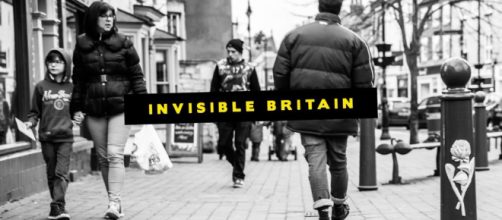According to Carers Trust, there are currently 700 000 Young Carers in the UK with a significant number still attending secondary education; in spite of representing a currently marginalised group, the livelihood of young carers will face further disenfranchisement due to withdrawal from the EU Court's directives, strained free movement and absence of the funding sourced from the European Regional Development Fund.
European Court Directives
Furthermore, a European Court decision in 2008 precluded discrimination against non-disabled employees in the work environment on the premise of their association or care for a disabled person.
The ruling has been instrumental in grounding protection for the rights of non-disabled carers. However, post-Brexit brings an era of uncertainty especially for young carers with the vast majority of funding flowing from corporate companies; how are young carers to receive support if the question of even obtaining vital funding remains elusive? The European Regional Development Fund offers 80 to 90 % of the funding for UK breakfast clubs while local services build the remaining ten percent, thereby preventing disadvantaged children across the UK's schools from becoming malnourished and allowing them to focus accordingly during lessons. It thus remains imperative to plan for fundraising strategies that enable corporate companies to donate with ease and to ensure this free movement of trade is paramount.
The Norwegian Substitute
The UK government seeks to mimic Norway's economic relationship to the EU to ordain access to the single market and organise a free trade. Subsequently, the UK would have to hold membership access to the European Economic Area (EEA) and the European Free Trade Association (EFTA), yet the dual substitute membership in replace of EU membership would mean relinquishing any say in decision making and changes in EU legislation. The UK would be a passive complier to EU demands and Norway itself following the anti-EU referendum have enacted 75 agreements with the EU. Norway's relationship with the EU has paradoxically proliferated and recently intensified over the EU issuing fishing licenses to harvest crabs in the Svalbard Islands that could open the archipelago to oil drilling.
The oil concentrated area yields an important facet in the argument and Norway's ambivalent position with the EU could lead to Brussels the de facto capital of the European Union seizing control of the oil concentrated area, thereby engendering a potential rebuttal of the Svalbard Treaty.
UK's Charities
The emulation of a conflicted Norwegian economic model to access the single market and the absence of the EU as a major international overseer issues a substantial series of impediments for international investors to grant funds. Moreover, the absence of an overseer begs the question of why international investors would cross through tariff charges to donate through mediating agencies to charities across the UK.
The UK charities receive support via the European Structural Fund (ESF) and the European Regional Development Fund, though due to Brexit now face losing an extensive £258m in EU funds according to Ferrell-Schweppenstedde at the Directory of Social Change The Prince's Trust has reaffirmed the multiple programmes supported by the ESF comprising of Enterprise, Get Into, Development Award and Outreach to help Young People with mental health challenges and enrolling them into employment. Furthermore, EU commissioned research grants given to medical research facilities in the UK are under threat, in particular ongoing research projects that extend into 2020 beyond the Brexit cut off point. For example, Cancer Research has organised TransPot (the Translational Research Network for Prostate Cancer) funded by the EU to liaise with academics and workers across Finland, Greece, Germany and Netherlands to integrate globally leading research scientists to conduct research for the incurable prostate cancer.
How will staff shortages affect young carers?
Nonetheless, creating new fundraising initiatives for the UK's charity sector have been unspoken for within Brexit talks by Conservative MPs and is becoming an increasing concern for organisations relying on these funding measures. Moreover, there has a been a surplus in the number of EU staff that have left the care sector following Brexit as a result of no apparent guarantees on their employment status. NHS Digital, an NHS data collector reported that over 9,832 EU doctors, nurses and support staff have already quit and with EU workers completing 12% of care jobs in London alone; irreconcilable staff shortages within the NHS cannot be denied. The staff shortage will irrevocably affect the quality of care received and young carers will be strained in taking a larger load of the care responsibility, consequently impacting their education, mental and physical well-being.
One alternative for the near future would be to match shortages via increased commonwealth immigration into Britain and hiring skilled workers from these countries in order to prevent the NHS and the broader care sector from disintegrating.
EU Children In Care
Perhaps the question that has been mostly ignored within the care sector, is in regard to the prospects of EU children in care. The rights of EU children are contingent on their parents or other family member's rights, yet recorded data on EU Children is limited as the Coram Migrant Children's Projects notes that a significant number of local authorities do not hold data on the nationality or immigrant status of children. It is thus difficult to approximate the number of EU children within the care system.
The most effective medium to protect their rights would be to incorporate the UNCRC (United Nations Convention on the Rights of The Child) into UK's domestic lawfully and authorise legal aid for separated migrant children.
Ultimately, Brexit discussions pertaining to the care sector represent a major imperative in securing and stabilising the livelihood of not only young carers, albeit minority migrant children with the care system as well. Additionally, in the context of continued Brexit talks, the reinforcement of new fundraising initiatives portray an utmost priority in providing integral support for young carers and sustaining medical research towards curbing debilitating health conditions.


